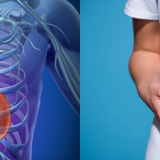Diabetes is a pervasive, challenging, chronic condition that can cause a wide range of problems if not managed properly. Because kidney disease is among one of diabetes’ potential complications, those affected must go out of their way to protect their kidneys. Research on this matter has revealed some exciting news – that a popular, easy to obtain substance, omega-3 fatty acids, may help improve the kidney health of diabetics.
Diabetes
An increasingly common metabolic disorder that interferes with the way a body accesses food for energy, diabetes affects an estimated eight percent of the population. Normally, sugars from food are digested and broken down into glucose. Glucose is then used by cells for fuel. In response to glucose in the blood, the pancreas secretes insulin to move that glucose into cells. A healthy pancreas produces the right amount of insulin to move glucose from blood into the cells. In people with diabetes, the pancreas either produces little or no insulin, or the cells do not respond appropriately to the insulin that is produced.
There are two main kinds of diabetes:
- Type 1– Previously known as juvenile diabetes, this is usually diagnosed in childhood. In type 1 diabetes, the body’s immune system destroys insulin-producing cells in the pancreas.
- Type 2 – Sometimes referred to as adult onset diabetes, someone with type 2 diabetes has a pancreas that does not produce enough insulin or his or her body cannot use insulin adequately (insulin resistance).
Either way, diabetes is equivalent to a major loss of fuel for the body and leads to a buildup of glucose in the blood.
Kidneys
Unfortunately, the kidneys suffer when excessive amounts of glucose build up in the blood. High blood glucose damages the kidneys’ filters, allowing protein to leak out into the urine. Besides being unable to effectively clean out waste and extra fluid from the body, continual kidney damage can manifest into kidney failure:
- According to the National Kidney Foundation, approximately 30 percent of people with long-term type 1 diabetes will develop kidney disease.
- Diabetes is the number one cause of chronic kidney failure in America.
- Kidney disease among diabetics has more than doubled in the past decade.
Omega-3s Help the Kidneys
For a long time, nutritionists have advocated the consumption of omega-3 fatty acids as a component to living healthfully. Demonstrating a wide range of benefits to the human body, foods rich in omega-3s are advised for everything from helping arthritis, supporting cardiovascular health, easing depression to protecting the liver. However, few are aware that omega-3s can also benefit the kidneys of a diabetic.
Two studies suggesting omega-3 consumption for people with both kinds of diabetes are:
- Type 1 – By measuring protein leakage in the urine of type 1 diabetics, United Kingdom researchers found that those with a higher consumption of omega-3 fatty acids excreted less protein (and therefore had better functioning kidneys) than those who consumed low levels of omega-3s.
- Type 2 – Upon measuring creatinine levels to evaluate the level of kidney damage, researchers from Hong Kong found that omega-3 supplements improved the kidney function of type 2 diabetics.
Both of these studies suggest that omega-3s from food or supplements benefit the kidneys of those with diabetes.
About Omega-3s
Although these oils cannot be manufactured by the body, omega-3 fatty acids are essential to human health. Primarily obtained from food, omega-3s are found in fatty fish, such as salmon, tuna and halibut, other marine life, such as algae and krill, as well as in certain plants and nut oils. The best fish sources are believed to be mackerel, lake trout, herring, sardines, albacore tuna and salmon, while some of the best plant sources include soybeans, canola, walnut and flaxseed.
For those who have a diet deficient in sources of omega-3 fatty acids, they are available in supplement form – usually in the form of fish, flaxseed or krill oil. If omega-3 supplements are taken, consumers should make sure they are certified free of heavy metals and consult with a knowledgeable healthcare provider to avoid potential interactions with medications.
It will likely take decades more of elaborate clinical trials for all physicians to advise eating a diet rich in omega-3s to their clients with diabetes. However, those wanting to protect their kidneys from high blood glucose levels stand to benefit from eating more sardines, mackerel and flaxseed. As an increasing number of Americans must learn how to manage diabetes, putting this dietary practice into effect will become an ever more important lifestyle choice.




